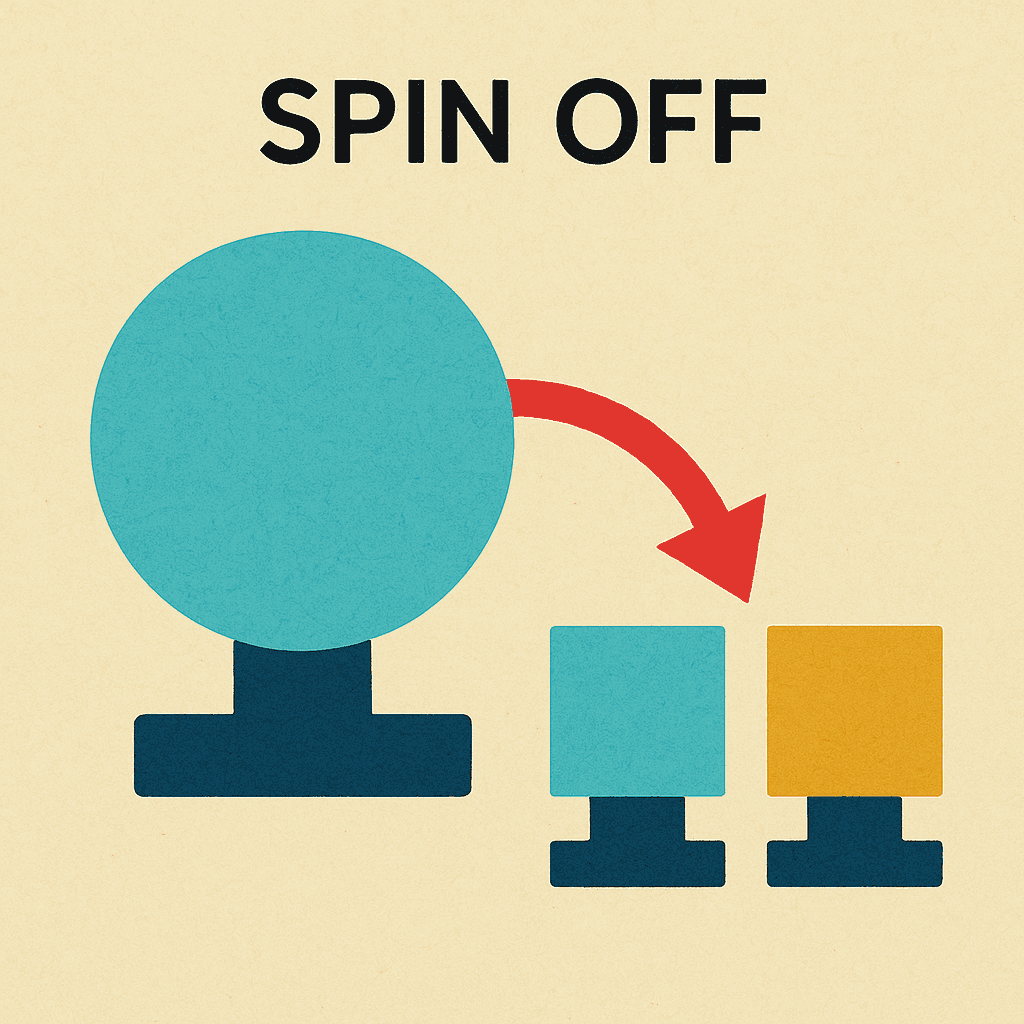Meaning
- Spin off means to create a new product, company, or idea from something that already exists.
- It can also mean something that develops as a by-product or secondary result of something else.
Grammar and Usage
-
Verb (phrasal verb): spin off (something) / spin (something) off
- Transitive: "The company spun off a new subsidiary."
- Intransitive: "The program spun off into several sequels."
-
Noun form: spin-off
- Example: "The popular show had a spin-off series."
Patterns
- spin off + noun
- spin off from + noun
- be spun off into + noun
Common Phrases
- business spin-off
- television spin-off
- technology spin-off
- spun off into a new company
Collocations
- spin off a subsidiary
- spin off a product
- spin off profits
- spin-off series
- spin-off company
Examples
- The corporation decided to spin off its software division into an independent company.
- The hit drama was so successful that it spun off a new series.
- Several innovations were spun off from the original space program.
- The university research project spun off multiple start-ups.
- The new app is actually a spin-off of a larger project.
- The company plans to spin off its online retail operations.
- The character was so popular that he got his own spin-off show.
- The government research resulted in many commercial spin-offs.
Synonyms or Related
- branch out
- break away
- split off
- derive from
- by-product
Antonym
- merge
- consolidate
- integrate
